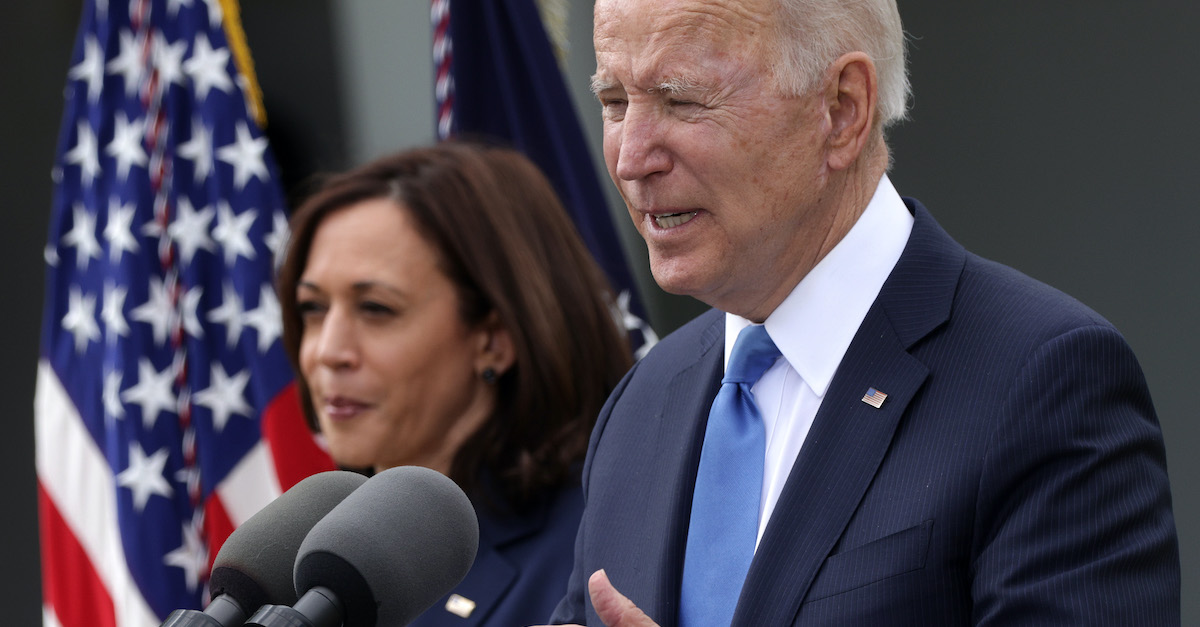
Expanding upon initiatives to boost the role federal defenders play in the U.S. justice system, President Joe Biden unveiled a $1.5 billion plan on Tuesday meant to expand access to counsel and the courts. Financed by a discretionary budget request for grants and funding, the move falls after Biden’s administration tapped a number of defense attorneys for federal judgeships.
Biden hearkened back to his own legal career in a White House press release announcing the initiative.
“As President Biden knows from his experience as a public defender, timely and affordable access to the legal system can make all the difference in a person’s life—including by keeping an individual out of poverty, keeping an individual in his or her home, helping an unaccompanied child seek asylum, helping someone fight a consumer scam, or ensuring that an individual charged with a crime can mount a strong defense and receive a fair trial,” the release states.
The presidential memorandum gives Attorney General Merrick Garland four months to submit a plan on how to expand the Department of Justice’s access to justice work.
“During the prior administration, the Department of Justice’s access to justice work, formally launched as an initiative in 2010, was effectively shuttered,” the White House said, signaling that Garland would release a statement on that plan later on Tuesday.
A second part of the memorandum re-establishes the White House Legal Aid Interagency Roundtable, begun under former President Barack Obama in 2015.
“The White House Legal Aid Interagency Roundtable will be co-chaired by the Attorney General and the Counsel to the President, or their designees, and will convene federal agencies to identify ways to address some of the most pressing legal services challenges that we face today—including those posed by the COVID-19 pandemic,” the release states.
The Biden administration noted that the pandemic has strained most social services, legal ones included.
“At the same time, civil legal aid providers and public defenders have been under-resourced, understaffed, and unable to reach some of the people in greatest need of their services,” the White House added.
Emphasizing themes of ethnic and legal diversity, Biden selected for first two judicial nominees—U.S. District Judge Ketanji Brown Jackson and Candace Jackson-Akiwumi—Black women with histories as public defenders. Those choices rebuked the typical path to judicial advancement, running through a U.S. Attorney’s office. Republican senators questioned both about whether they represented Guantánamo detainees, in an apparent attempt to turn the obligation to zealously defend unpopular clients into a political liability. Only Judge Jackson, seeking a promotion to the U.S. Court of Appeals for the D.C. Circuit, did, once.
Biden also tapped Chief Judge Gustavo A. Gelpí, Jr., another former public defender who currently sits on the U.S. District Court for the District of Puerto Rico, for the U.S. Court of Appeals for the First Circuit. Other former public defenders turned Biden judicial nominees include Eunice Lee, his choice for the U.S. Court of Appeals for the Second Circuit; Veronica S. Rossman, nominated for the Tenth Circuit; and Angel Kelley, vying for a spot on the U.S. District of Massachusetts.
(Photo by Alex Wong/Getty Images)